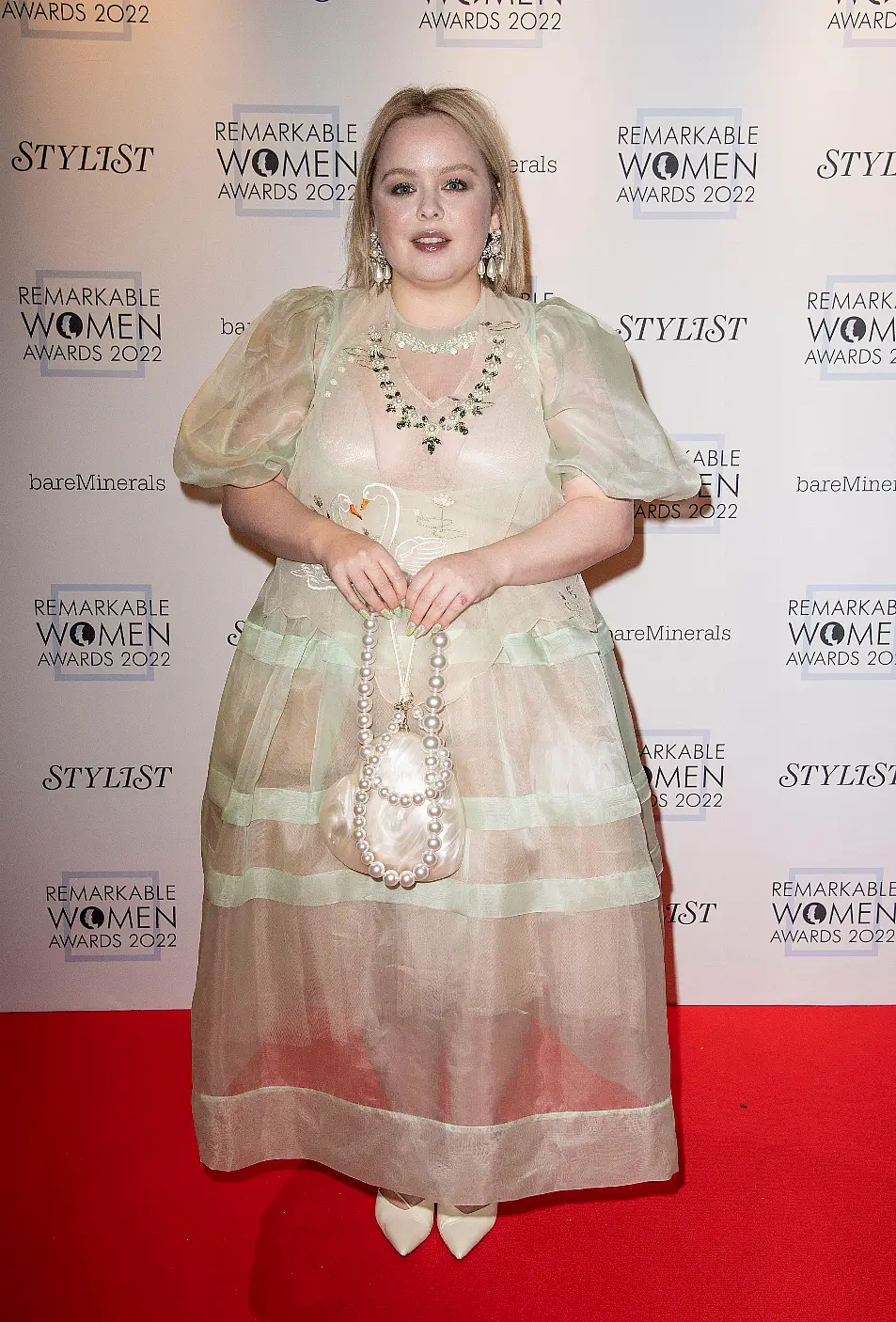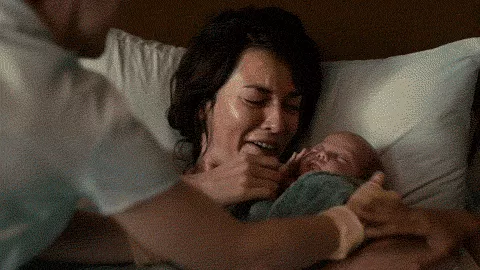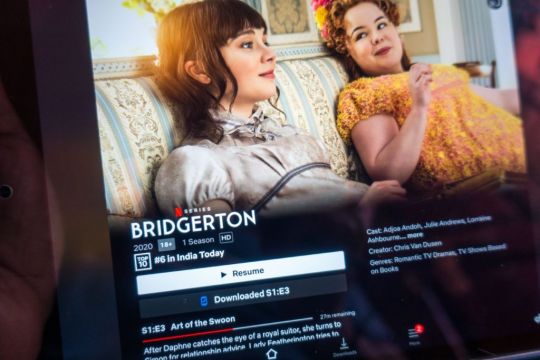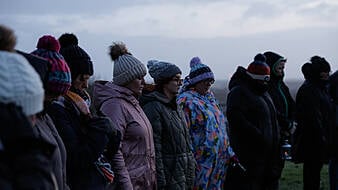With its scandals, dramas and opulent outfits, the second season of Bridgerton lands on March 25th.
There’s a lot to live up to – season one was watched by a record-breaking 82 million households in 28 days.
But there’s also plenty look forward to in round two – we now know Nicola Coughlan’s character is the anonymous gossip writer, Lady Whistledown, and the main storyline is expected to be a romance between Anthony Bridgerton (played by Jonathan Bailey) and newcomer Kate Sharma (Simone Ashley).
This author's quill knows no loyalty, thus it is advised to guard one's secrets with their life. Bridgerton Season 2 returns March 25, 2022. Only on Netflix. pic.twitter.com/hQ9HAkZjxX
— Bridgerton (@bridgerton) February 14, 2022
Advertisement
It’s not hugely surprising the first season of Bridgerton was so popular – it streamed during lockdown, so we were all at home and desperate for entertainment – and it also comes as part of a trend: an obsession with period dramas.
Nicola Coughlan plays Penelope Featherington in the show, and she completely understands why it’s been so popular. “The world has been a very stressful place for the last number of years, so it just feels like an escape, it feels like a simpler time,” says Coughlan, 35. “And then you’ve got relatable issues of the real world – it’s a show about love at the core of it, so I think there’s something really deeply comforting and nice about that.”
This helps explain why we love period dramas so much, and why new shows hit our screens so regularly…
They can be pure escapism

To some extent, period dramas “allow us to venture into a different world, and immerse ourselves in that world”, muses Dr Vicky Ball, senior lecturer in cinema and television history at De Montfort University. “Particularly in the last few years and during lockdown, we’ve all needed that escape to a different kind of world – and particularly in the case of Bridgerton, it’s quite an opulent, bright, beautiful, luxurious world, with gorgeous costumes, gorgeous looking food, and gorgeous looking sex as well.”
For Ball, this is all “part of the pleasure” of watching the show. In the case of Bridgerton, it’s not like we’re signing ourselves up for historical accuracy, but it can help us deal with what’s going on around us in real life.
“Those elements of escapism point us to things we’re looking for in our everyday life that are absent. Against that is a sense of excess, a sense of community, a sense of luxury – that’s not around at the moment, or it wasn’t certainly during lockdown.”
They run the gamut of emotions

While period dramas are a varied genre, they tend to lean heavily into the emotional side of human existence – and for this, Ball suggests it “fulfils a need”.
She’s a particular fan of Call The Midwife (“I end up crying at the end of every episode”), saying: “It’s cathartic, to have that space to laugh, to cry – you go through the whole gamut of emotions, which is really important.”
But successful period dramas are still relatable

Of course, there’s something about transporting ourselves into a completely different world – but that doesn’t mean period dramas aren’t relatable.
“There’s still got to be a connection between the world we’re watching – even if it is far removed,” says Ball. This could, in part, explain the wild popularity of Bridgerton – it’s fairly unique in being a period drama with a diverse cast, in a time when we’re all thinking more about equality.
“All programmes have to adapt and change with cultural shifts,” Ball comments. “This diversification and pluralising of history is very much about the present, and trying to engage with issues of the day – and certainly, diversity is one of those key issues.”
She looks again at Call The Midwife, wondering if its success could be down to the pro-NHS messages within it – particularly in “the context of lockdown, where we know the importance of clapping for carers, and the work the NHS does to look after us all” – and this can be broadened to be about “looking after each other, which is really the value that underpins Call The Midwife”.
With all the opulent outfits and extravagant sets, Bridgerton, like many period dramas, is perfect for a bit of escapism – but that doesn’t mean it’s not about the human condition in general. While we might not wear quite so many corsets today, there’s still plenty to relate to.
Season two of Bridgerton is released on Netflix on Friday, March 25th







